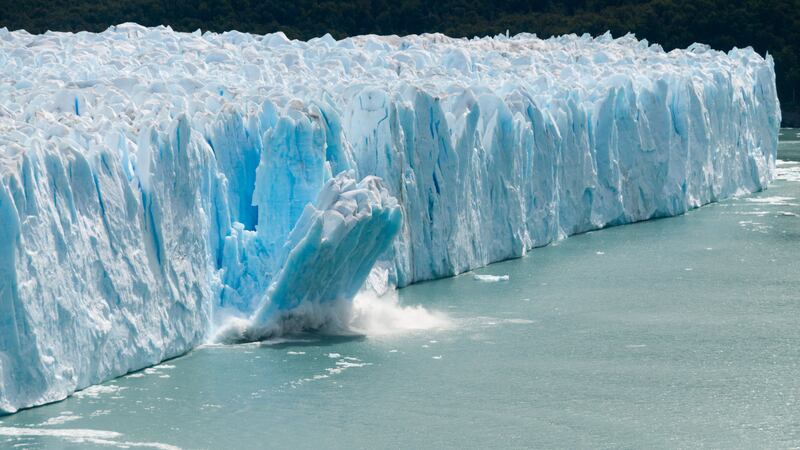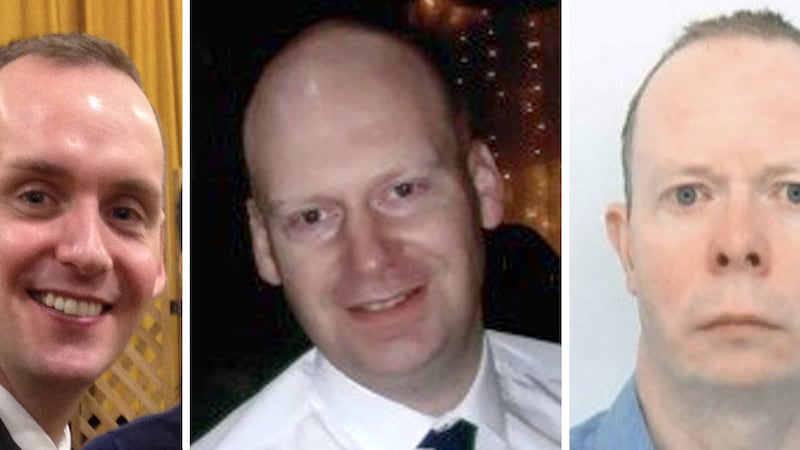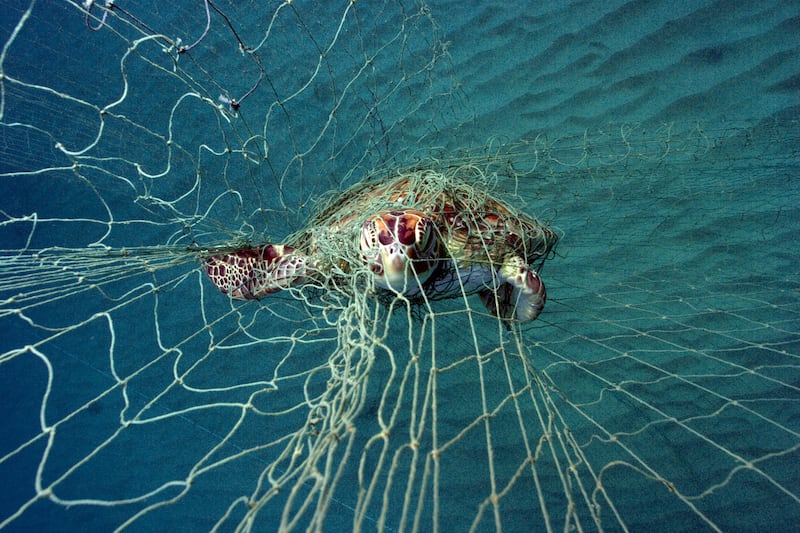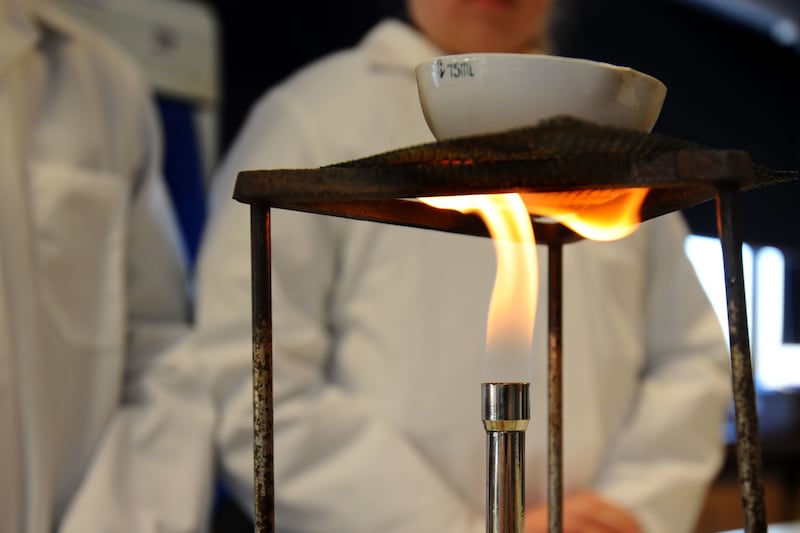Donald Trump angered climate activists again on Thursday with a tweet which appeared to suggest global warming was a positive thing.
In the East, it could be the COLDEST New Year’s Eve on record. Perhaps we could use a little bit of that good old Global Warming that our Country, but not other countries, was going to pay TRILLIONS OF DOLLARS to protect against. Bundle up!
— Donald J. Trump (@realDonaldTrump) December 29, 2017
His tweet was met with outrage by many, who said he was confusing weather with climate to make his followers doubt climate change.
Climate specialists responded to his tweet forcefully, using data and evidence to disprove his comments. Here’s what they had to say.
Warmer isn’t always better
Canadian climate scientist Katharine Hayhoe had some things to say about the idea that warming up the world a little would be no bad thing.
She posted a video which forms part of a series called Global Weirding. The series aims to answer some basic questions about climate change to help non-scientists understand the impact it it having.
“We could use a little bit of that good old global warming” says Trump.
Maybe he should have watched our latest Global Weirding episode first: https://t.co/rF1ld2GUq6
— Katharine Hayhoe (@KHayhoe) December 29, 2017
According to Hayhoe, studies have found that anger and bad temper are associated with warmer temperatures and well as a host of other side effects.
Global warming isn’t disproved by cold weather in some areas
It’s dark outside now. Therefore there is no sun. https://t.co/DRc1KyzOE2
— Scott A Mandia (@AGW_Prof) December 29, 2017
As professor of Earth and space sciences and co-founder of the Climate Science Rapid Response Team Scott Mandia reminds us – just because we aren’t experiencing blazing heat right now, it doesn’t mean the world isn’t warming.
In fact, according to the UN’s climate change division, 2017 is set to be one of the three hottest years on record globally, despite the recent dump of snow in some regions.
Climate scientist Michael Mann expanded on this point, sharing data from Climate Signals showing that over the past year in the USA there have been three times as many high temperature records broken as low ones.
For climate change deniers getting very excited that it's cold outside at the end of December, here's the ratio of hot extremes to cold extremes in the U.S. over the past 365 days. It exceeds 3 to 1.Via @ClimateSignals (https://t.co/oN03CJBupE): pic.twitter.com/8K3PfXbeh2
— Michael E. Mann (@MichaelEMann) December 28, 2017
Not every extreme weather event can be blamed on #climatechange. However: Rising atmospheric CO2 concentrations ➡️ Rising global average temperatures ➡️ Drier vegetation ➡️ Longer & more intense wildfire seasons @WMO @IPCC_CH https://t.co/3ccegnAQKt
— UN Climate Change (@UNFCCC) December 7, 2017
Global warming can bring heavier rainfall and more severe storms in some areas of the world while causing drought in other areas.
Who pays for the Paris Accords
The part of Trump’s tweet getting the least notice is his declaration that the US, not any other signatories of the Paris Accord, would have footed a bill for trillions of dollars to pay for it.
As watershed hydrology professor at Kent State University Anne Jefferson comments, each of the 197 signatories of the Paris Agreement came up with their own commitments (termed nationally determined contributions) and signed the agreement voluntarily.
Fake news. <— Really. A cold snap in one part of the country doesn’t negate decades of solid science & observed climate change globally. https://t.co/OB4o1B1P1G
— Anne Jefferson 🌧🏡 (@highlyanne) December 29, 2017
Fortunately many US cities, states, companies and individuals are still committed to #ActOnClimate. #WeAreStillIn
— Anne Jefferson 🌧🏡 (@highlyanne) December 29, 2017
The world needs better language to talk about climate change.
Doug McNeall, climate scientist and statistician at the Met Office, used Trump’s tweet to illustrate the argument that scientists need to find more relatable language to talk about the effects of global warming on the present and future.
Communicating the impacts of climate change so that people can really *feel* and *understand* their magnitude is a huge challenge. https://t.co/51Gu0MEUBH
— Doug McNeall (@dougmcneall) December 29, 2017
So often, we use neutral or technical language. “Ecosystems will be disturbed” for example. It’s hard to visualise that or feel it’s seriousness.
— Doug McNeall (@dougmcneall) December 29, 2017
President Trump is at an advantage here – he’s using a direct,simple, single (and wrong) example of evidence against global warming that people can feel right now.
— Doug McNeall (@dougmcneall) December 29, 2017
Part of the challenge is communicating that climate change will be greater, faster and most likely more impactful in the future than it was in the past. https://t.co/rhGVJ1g8Ou
— Doug McNeall (@dougmcneall) December 29, 2017
Weather and climate are not the same thing
TV meteorologist John Morales used his weather broadcast on NBC 6 to give an overview of the world’s temperatures and set the cold snap in the east USA in context.
The tweet made air right after a cold weather story (not my decision).
So I stood up in defense of science. #ClimateChangeIsReal #ActOnClimate pic.twitter.com/JhKoEGtCzW
— John Morales (@JohnMoralesNBC6) December 29, 2017
The difference between weather and climate is basically time. As NASA puts it: “Weather is what conditions of the atmosphere are over a short period of time, and climate is how the atmosphere ‘behaves’ over relatively long periods of time.”
Global warming is a symptom of the climate changing over a long period of time due to human activity like burning fossil fuels, which releases carbon dioxide into the atmosphere.
As global warming is something that happens over a long period of time, it’s impossible to ask for it to come and warm you up on the east coast of the USA.
In our free course 'Climate Change: Science', we'll learn the difference between weather events and climate change and review the evidence for our influence on this change. It's easy to confuse the two, even if you're a president. https://t.co/TYQqRdf0xL
— Exeter Climate MOOCs (@ClimateExeter) December 29, 2017
The University of Exeter chose to respond to Trump’s tweet offering a free four-week course on their Climate Change: The Science course. Anyone can join, so if you’d like to know more, take a look.








